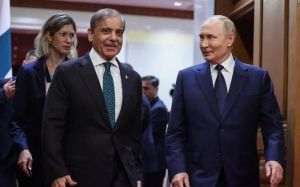A strange confrontation is taking place with regards to the evaluation of the Romanian economy, both abroad and in the local mass media. Teams of economic analysts from more or less prestigious institutions are applying various diagnoses to the Romanian economy, judging it, sometimes without analyzing it too deeply, and label it or place it in various international classifications with varying degrees of thoroughness.
What puzzles me is how different these classifications can be. For example, as soon as international rating agencies evaluated the Romanian economy at BB+, a classification that invites everybody to invest in Romania, specialists from the European Union concluded that the Romanian economy is not fully functional. Furthermore, EBRD, one of the biggest foreign investors in Romania, in its report on transition countries, appreciates as positive the evolution of the Romanian economy after 1999. The same is valid for OECD, although they still have some reservations. EBRD is an extremely serious institution and its reports on transition are taken seriously by serious people. Serious is the also Heritage Foundation, one of the richest and most influential NGOs of the American conservatives. In its classification on the freedom of national economies, Romania takes the 129th place, 30 steps down as compared to last year, as if the government of Romania did nothing else but nationalize private properties and introduced customs duties.
The truth is that the Romanian government went the other way around, privatizing state properties and eliminating some customs duties, but this did not impress Heritage and lowered us in the classification well behind Mongolia - which, after all, is an economy based on horse breeding - and Mauritania - which, after all, is a country of camel breeders.
And the classification of the Heritage Foundation, which is based on information taken from the US Department of State and the Financial Times, consciously ignores - it is hard to understand their intention - the fact that the American Congress itself established at the same time that the Romanian economy is classified as a market economy.
On the other hand, a prestigious German institution established that the Romanian economy is compatible with the one of the European Union in a proportion of almost two thirds, which substantially reduces the empty half of the glass that the foreign specialists seem to be examining.
Closer to the Romanian reality, during their meeting in Sinaia with the prime minister and the ministers responsible for economic issues, the foreign investors in Romania and most of the Romanian business community correctly observed that Romania has not only economic problems, but also a problem with its international image.
And this is a fact. How can one not have an image problem when, according to a study conducted by Transparency International, the country is perceived as having the highest corruption in Europe and one of the highest in the whole world? When foreign investors declare that they do not trust Romanian judges, who are corrupt and give sentences according to phone calls or the weights of the envelopes with the bribes they receive? And, generally speaking, how can one not have image problems when the local media stimulates the international one to present negative cases and aspects, and then take over the international articles in order to better construct the image that the Romanian economy functions poorly.
But this time both local and international media, together with foreign analysts, are wrong. The Romanian economy has never been better since 1980, i.e. for almost a quarter of a century. Once there is something working in Romania, those who must perceive it, both here and abroad, seem to be blind or with bad intentions.
Unfortunately, neither of these appearances is real. I said "unfortunately" because if they were true, one could try to counteract them. If they were blind, one could send the foreign analysts rigorous data so that they change their opinion and stop labeling Romania by ear. For example, the analysts of the Heritage Foundation, who placed us behind Mongolia and Mauritania, did not even bother to find out what the population of Romania is - we had a census in 2002 - and, they over-stated the result by almost one million. Other information on which Romania is evaluated, for better or for worse, by the Heritage Foundation or other institutions, looks similarly imprecise.
Our biggest problem is that all of these analysts do not consider Romania as being sufficiently important in order to bother to be accurate and well informed. And the target public also shows little interest, and quickly turns the pages with information on this country, and does not bother to carefully read the labels stuck there.
On the contrary, all classifications and labels that refer to Romania mean a lot to the Romanian media, public opinion and politics. Instead of looking closely to what happens in Romania, they prefer to look at what specialists in London or New York write about the Romanian economy. A good or a bad label can be used in the Romanian game of politics because it has a force of legitimacy stronger than any national authority.
"Look what the foreigners are saying about us!" is the most important thing that local media said about these reports and analyses. And, surprisingly enough, neither of the newspapers or TV stations decided to check whether those foreigners are right or not, whether the figures they use are correct, or the conclusion are well founded. Romanian specialists also did not sit with a pencil and the statistical data so that they analyze them and correct them at least for the local public opinion if not for the international one.
And this is one of the most import deficiencies we have, which is also responsible for the negative image of Romania abroad. We do not perform our own analyses and reports and we do not participate in the analyses and reports others do about us. If we want to find out something about the Romanian economy, we go and see what others from the IMF or World Bank, or other institutions of this type, think about it. We do not use our eyes and enough professionalism so that international institutions and anyone who needs to know something about Romania look first for conclusions with Romanian authors and then afterwards with journalists that may or may not have visited our country.
Even more, we tried and succeeded in convincing public opinion - at least partially - that foreign analyses are much better than Romanian ones, that the labels used by others are much more valid than the ones we use and that, in general, Romanian specialists are either incompetent or liars and they do not deserve to be taken seriously.
This is both a guilt complex and a severe disability of Romania's intellectuals, who, otherwise, have an excellent opinion about themselves.

















































